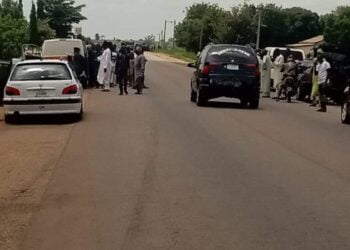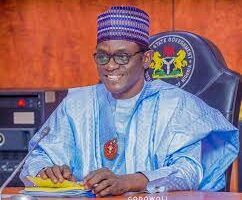By Vivian Okejeme
Abuja
Former Plateau state governor, Joshua Chibi Dariye, is wanted in the country by Economic and Financial Crime Commission (EFCC) in relation to a case of money laundering for which he was arrested and detained briefly in 2004 by the London Metropolitan Police.
A detective with the Economic and Financial Crimes Commission (EFCC), Musa Sunday told Justice Adebukola Banjoko of the High Court of the Federal Capital Territory (FCT) in Gudu, yesterday that the case of money laundering for which Dariye was arrested, granted police bail and was expected to report back, is still pending before London Metropolitan Police.
Sunday made this disclosure while testifying in the money laundering trial of Dariye, now a serving Senator, representing Plateau Central. He was governor of the state between 1999 and 2007. He is facing a 23-count charge.
The witness, while being cross-examined by Dariye’s lawyer, Garba Pwul (SAN) confirmed that the decision by the EFCC to investigate Dariye for alleged money laundering was informed by information provided by the London Metropolitan Police. He said the case was still pending in London.
“The defendant (Dariye) was granted police bail by the UK police. And he jumped bail. The Investigating Police Officer (IPO) in London, Peter Clerk was in Nigeria in the course of our investigation,” Sunday said.
Earlier in his evidence-in-chief, Sunday gave details of how Dariye allegedly moved funds from the account of the Plateau State’s Accountant General in Lion bank (now defunct) to an account in All States Trust Bank (now defunct) allegedly owned by a firm, Ebenezer Ritnan Venture Limited, linked to Dariye.
“And when we look at the functions of this ministry, we see that the ministry is divided into two divisions; human resources and capacity building, economic services and women cooperative but when we look at the first division which is the human resources and capacity building, they are supposed to promote education, development of women in the civil, political, socio cultural and economic sectors”.



